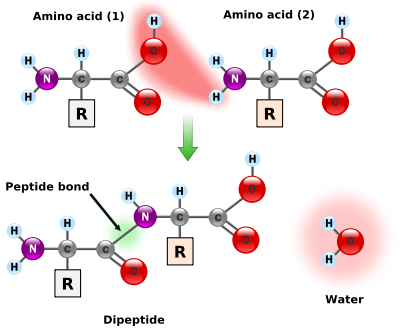Amino Acids in Fighting Addiction
Amino Acids Aid in Treatment of Addiction
Addiction to drugs has been on a rise over the last century. It has therefore been a concern all over the world to develop medication which would address this problem. Through researches many prescription drugs were developed and many of them have proven to cure addiction. Another concern which has of late arisen is that some of the drugs that are given to us (patients) by doctors as prescription drugs have also turned to be addictive. A good example of these drugs is the opioids which are meant to cure pains. This has prompted need to device medication which can cure any kind of addiction, either resulting from legal and illegal drugs or over the counter drugs. One of the treatments which have proven effective is the amino acid treatment.
What is amino acid?
Amino acids are the building blocks of proteins. These acids are responsible for building the cells, repairing tissues, also responsible for the production of enzymes not forgetting their role in the mental health. Research has shown that about twenty percent of a human body is made up of proteins.
It is important to note that, although proteins are vital in the human body, the body cannot obtain them directly from the food. These dietary proteins must be broken into their constituent amino acids which the body then uses to build the specific proteins that it needs. In this respect, we can conclude that it is the amino acids rather than protein that are essential nutrients.

Why are some amino acids referred to as essential?
There are basically two categories of amino acids. These are the Essential and non-essential amino acids. Yes, they are referred to as essential because the body needs them in plenty but it cannot synthesize in sufficient quantities to satisfy the nutritional requirements for good health and thus they must be included in our diets. On the other hand there are other amino acids which are regarded as non-essential because they do not have to be included in our diets since they are not required in plenty by our bodies and also the body can synthesize enough for itself.
How does amino acid cure addiction then?
Like we mentioned earlier, Neurotransmitters are made from amino acids which is the building block of proteins. The brain nervous system is almost entirely regulated by amino acids and their biochemical companions, vitamins and minerals. In this respect, before we look at how amino acids cures addictions is important to note that there are key neurotransmitters which are affected by addiction and needs to be restored to their normal state for the person to recover from drug addiction, and be free from craving and anxiety during the period of recovery. Amino acid treatment plays this role by restoring the affected neurotransmitters to their normal conditions. These neurotransmitters are responsible for good mental health and they include: – Serotonin, Catecholamine; GABA; and Endorphin. Amino acids in the treatment of addiction address the tyrosine pathway, the glutamine GABA pathway in the treatment of addiction, Tryptophan pathway, Serotonin and Melatonin Pathways, Taurine IV for
addiction
What is the Role of cofactors and coenzymes in Amino Acid treatment?
Let’s start by understanding what cofactors and coenzymes refer to. Cofactors refer to non-protein molecules which are required for effective activity of Amino Acids. These cofactors can be organic or inorganic substances. The organic cofactors are the ones referred to as Enzymes. In this case therefore, enzymes can be seen as protein catalysts that are responsible for lowering the energy barriers of many biological reactions. They do this by lowering the activation energy of the reaction that they catalyze and this allows the metabolic reaction to occur faster that it would under normal temperatures.
What makes cofactors important?
Just like we have mentioned above, the cofactors will catalyze the reaction ensuring sufficient metabolic energy generation. One of the notable important cofactors is the metal ions. These include ions such as Magnesium (Mg++), Potassium (K+) and Calcium (Ca+). These cofactors bind the enzymes and participate in the reaction by removing electrons, protons, or chemical groups from the substrate. In reactions which involve oxidation-reduction, coenzymes remove electrons from the substrate and then pass them to the other molecules. Habitually, the electron is added to a proton to form a hydrogen atom before it is passed on. Through this way, coenzymes serve to carry energy in the form of electrons from one compound to the other.
Is amino acid treatment safe?
Yes, amino acid is a very safe treatment of addiction since it involves providing the body with all what it requires in the process of addiction recovery and allowing it to cure naturally. This treatment seeks to restore neurotransmitters to their initially healthy functioning state that they used to be at before addiction. This gives the patient a permanent solution to addiction. Another advantage of using amino acid treatment is that it ensures that the patient is free from craving effects and unlike some addiction medication methods which leaves behind addiction effects in the long run, amino acid treatment is not addictive. With all these advantages we can now conclude that amino acid treatment is a safe and a recommendable method of addiction treatment.
Amino Acids Aid in Treatment of Addiction
Related articles

















 Detoxification and Cancer treatment
Detoxification and Cancer treatment













